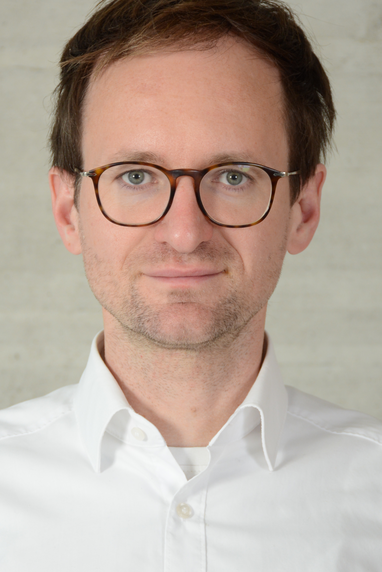Prof. Dr. Bastian Schröter
Professor

Urban energy systems; Water-energy nexus; Carbon Accounting
- Sustainable energy technology
Urban and regional energy systems, decarbonization of energy systems, greenhouse gas accounting
Vita
-
Since 2016
Professor for Energy Technology
-
2014-16
Project manager technology benchmarking, Siemens Corporate Technology, München
-
2010-12
Ph.D, Wissenschaftszentrum Umwelt, University of Augsburg (Prof. Dr. A. Reller). Dissertation topic: Investigation of interdependencies of water and greenhouse gas emission pathways at countrly level
-
2008-14
Consultant and project manager, McKinsey & Company, Munich
-
2002-07
Diploma (M. Sc. equivalent) in physics , University of Jena, University of Grenoble, LMU Munich; Thesis topics: Molecular Recognition with Toroidal Microcavities, Max Planck Institut for Quantum Optics, Garching (Prof. Dr. T.W. Hänsch)
Research
![[Image: HFT Stuttgart] SektorSim3 Logo](/fileadmin/Dateien/Forschung/Projekte/Projektlogos/SektorSim3_Logo.png)
NeuLand
New sustainability processes and sustainable user behavior for state properties
![[Image: Logo-Neuland/Flaticon.com]](/fileadmin/Dateien/Forschung/_processed_/9/6/csm_NeuLand_Logo_cce1c05c0b.png)
![[Image: HFT Stuttgart]](/fileadmin/Dateien/Forschung/_processed_/4/0/csm_CircularGreenCity_logo_RGB_553bbcc684.jpg)
W4RES
Scaling up the involvement of women in supporting an accelerating market uptake of renewable energy sources for heating and cooling
![[Image: https://w4res.eu/]](/fileadmin/Dateien/Forschung/_processed_/d/4/csm_W4RES-Logo2_f07e22b35e.png)
IN-SOURCE
INtegrated analysis and modeling for the management of sustainable urban food-water-energy Nexus ResSOURCEs
![[Image: HFT Stuttgart] Grafische Abbildung des Projektschemas](/fileadmin/Dateien/Forschung/_processed_/b/f/csm_INSOURCE_Project_Scheme_89a7e51c3a.png)
![[Image: HFT Stuttgart /Forschung] Logo des Projekts](/fileadmin/Dateien/Forschung/_processed_/2/0/csm_SmallLogo_EnSys-LE_e3f8c44864.jpg)
![[Image: HFT Stuttgart/ Romain Nouvel/ Eric Duminil] Logo von SimStadt](/fileadmin/Dateien/Forschung/_processed_/0/3/csm_SimStadt_Logo_13b9b8c748.png)
Publications
-
ResearchGate
https://www.researchgate.net/profile/Bastian-Schroeter
-
Google Scholar
https://scholar.google.com/citations?user=hpdGY-EAAAAJ&hl=de
Misc.
Climate Innovation Council of the City of Stuttgart - Jury Member